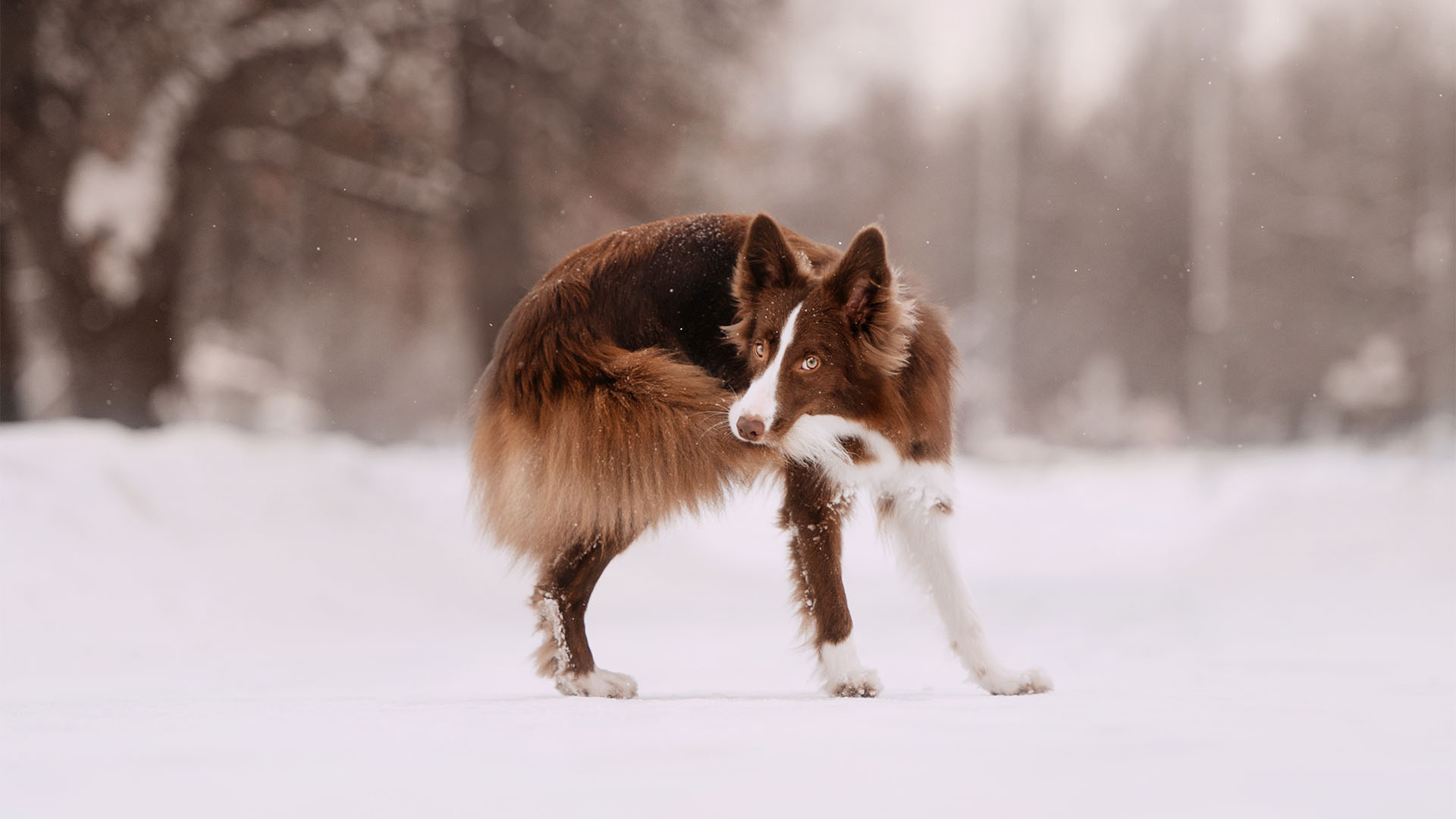Why do dogs chase their tails?
Why are dogs, especially puppies, in endless pursuit of their tails?

Get the world’s most fascinating discoveries delivered straight to your inbox.
You are now subscribed
Your newsletter sign-up was successful
Want to add more newsletters?
Join the club
Get full access to premium articles, exclusive features and a growing list of member rewards.
Around and around they go — dogs are often seen spinning in endless pursuit of their own rears. But why do dogs chase their tails?
There are several possible reasons for this behavior, as well as ways to thwart it, experts told Live Science.
Puppies and younger dogs may simply chase their own tails for fun. Puppies, especially, may not yet realize their tails are actually part of their own bodies, according to Schertz Animal Hospital in Texas.
Boredom may be another reason, especially when dogs are left alone for a long time. "Anytime a dog is not enriched or exercised fully, they have the potential to be bored and to self-soothe," Russell Hartstein, a dog behavioral consultant and founder of Fun Paw Care in Los Angeles, told Live Science.
For dogs that run in circles because they are bored, a simple solution may be to play fetch or take a walk. Most dogs would rather chase a ball than their own tails, the VCA Animal Hospitals in Los Angeles notes.
Another reason dogs may chase their tails is to seek attention. A dog's owner may have rewarded this behavior by laughing or saying "good boy" or "good girl," Hartstein said. Even scolding a dog for tail chasing may draw attention that reinforces this behavior, according to VCA Animal Hospitals. To curb tail chasing, ignore the behavior while otherwise supplying the dog with a healthy amount of attention, Schertz Animal Hospital says.
Related: Why do dogs bury bones?
Get the world’s most fascinating discoveries delivered straight to your inbox.
Certain dog breeds are prone to tail chasing. For instance, bull terriers and German shepherds "are well known for susceptibility to compulsive behaviors such as tail chasing," Hannes Lohi, a geneticist at the University of Helsinki, told Live Science.
Unfortunately, a number of physical ailments are linked with tail chasing. An injury to the tail, itching due to intestinal parasites or fleas; impacted anal glands; or food allergies may cause a dog to lick, bite or chase their tail, according to Schertz Animal Hospital. If dogs suddenly start chasing or biting their tails, their owners should schedule a visit with their vet, VCA Animal Hospitals noted.
Finally, tail chasing may be linked with neurological disorders, such as canine compulsive disorder, the dog version of obsessive-compulsive disorder.
In a 2012 study, Lohi and his colleagues investigated 368 dogs from four breeds known for tail chasing. The behavior typically began at 3 to 6 months of age, with nearly half of the tail-chasing dogs displaying other types of compulsions, such as pacing in repetitive patterns, more than regular dogs did.
"Interestingly, dogs that received dietary supplements, especially vitamins and minerals, expressed less tail chasing compared to dogs that did not receive any supplements," Lohi said. "Neutered females had less tail chasing, suggesting an influence of ovarian hormones on tail chasing." In addition, compared with dogs that didn't chase their tails, tail chasers were often shier and had separated earlier from their mothers, he said.
If a dog is otherwise healthy, "practicing dog training and engaging their mental and emotional aspects of their lives will help stop tail chasing," Hartstein said. "There's no downside to training more with your dog and making sure they are fulfilled and enriched in every way possible."
Getting dogs to practice behaviors that are incompatible with tail chasing can help curb the behavior. "For example, if a dog is heeling next to you, or if they're sitting or in a down position, or they're waiting for your guidance, then they will not be looking to chase their tail," Hartstein said.

 Live Science Plus
Live Science Plus












